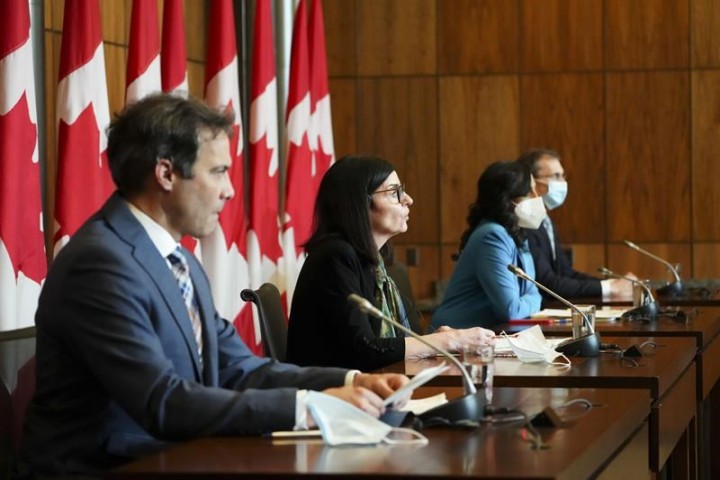OTTAWA — Then-defence minister Peter MacKay climbed into a fake F-35 cockpit before smiling for the cameras and flashing a thumbs up. The date was July 16, 2010, and MacKay had just announced that Canada was planning to buy a fleet of stealth fighters.
Fast-forward to Monday and the scene was very different. There was no fake cockpit, no smiles or thumbs up as Procurement Minister Filomena Tassi and Defence Minister Anita Anand made virtually the same announcement: Canada was going with the F-35.
In many ways, it seemed there was little to celebrate after 12 years of political controversy and mismanagement. Yet while there is no denying the cost to taxpayers, the military and Canada’s reputation, experts say that doesn’t mean there hasn’t been some benefit.
Defence analyst David Perry of the Canadian Global Affairs Institute says the clearest benefit is that the F-35 is now flying actual missions for the U.S. and other allies, which wasn’t the case more than a decade ago.
“There hadn’t been all that many aircraft that had been produced back in 2010, and we’re now into the hundreds and thousands of flight hours,” Perry said. “Basically, it is much more advanced and mature than it was in 2010.”
Queen’s University procurement expert Kim Nossal agrees, saying Canada managed to skate around many of the development issues that are still being ironed out on the F-35s, which only became fully operational for the U.S. in 2016.
Nossal is also hopeful that the past 12 years have had another benefit: reducing the level of political interference in military procurement, which he blames for the fact Canada will still be flying its aging CF-18s through 2032.
“The real question is whether or not the political parties, mainly the Liberals and the Conservatives, have learned from what happens when you decide to play politics with a major military procurement,” he said.
In particular, he says MacKay and other members of Stephen Harper’s Conservative government tried to rush the purchase of 65 F-35s by failing to do their due diligence, including running a competition.
Justin Trudeau continued that trend, Nossal said, by making the “rash” and untenable promise in 2015 not to buy the F-35 while also promising to hold an open and fair competition to replace the CF-18s.
“The Liberal government spent a good five years trying to find ways to square what was an unsquareable promise,” he said. “And only recently, did they finally get around to doing it in such a way as to get the decision that they came down with yesterday.”
University of Manitoba military expert Andrea Charron said that has been part of a trend.
“I don’t think there’s any one person or one party that can be blamed,” she said. “It’s consistent, persistent Canadian issues with procurement. We tend to make the decisions very partisan ones. We’re loath to spend lots of money on defence.”
Tassi made a point Monday of describing the competition that led to the decision to launch negotiations with U.S. defence giant Lockheed Martin for the purchase of F-35s as non-political, saying the decision was “based on facts” rather than “best guesses.”
Still, even if that is true, experts say there is no denying the costs incurred. They include the investment of billions of dollars to keep the CF-18s in the air while the military waits for new fighter planes.
Public and political faith in the military procurement system has also been shaken, particularly after the scathing 2012 auditor general’s report that identified major concerns with how the F-35 file was managed, and as the procurement system continues to experience delays.
“Beyond that, the fact that we could not make a decision to buy new airplanes and replace others that are 40 years old has caused some reputational harm to Canada amongst our allies,” added Perry.
And then there are the questions left over from Monday’s announcement, which the government said will be ironed out during the negotiations with Lockheed Martin: When will the F-35s start to arrive? And how much will they actually cost?
Perry noted what ultimately led to the Conservatives pushing reset on their plan in 2012 to buy the F-35 without a competition was concerns about the high cost of the aircraft, with estimates pegging the price tag at more than $45 billion over 40 years.
“I didn’t hear any numbers yesterday about what the lifecycle cost of these jets is going to be,” he said.
“In 2010, 2011, and 2012, that was a front-page crisis about whether or not there was the right number for lifecycle cost.”
Nossal, meanwhile, noted that things can still go sideways if the negotiations with Lockheed Martin go awry.
This report by The Canadian Press was first published March 29, 2022.
Lee Berthiaume, The Canadian Press
Related
































